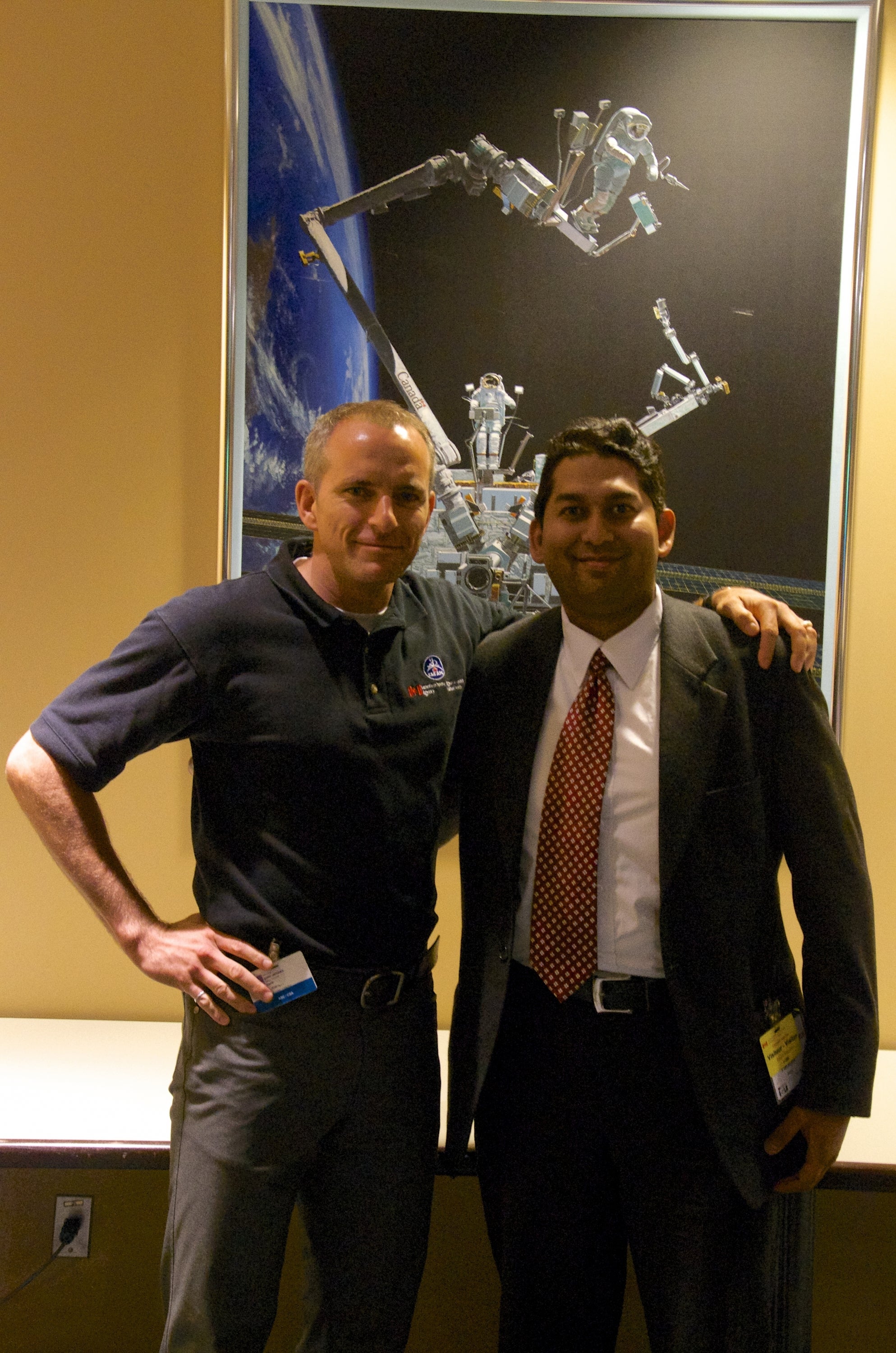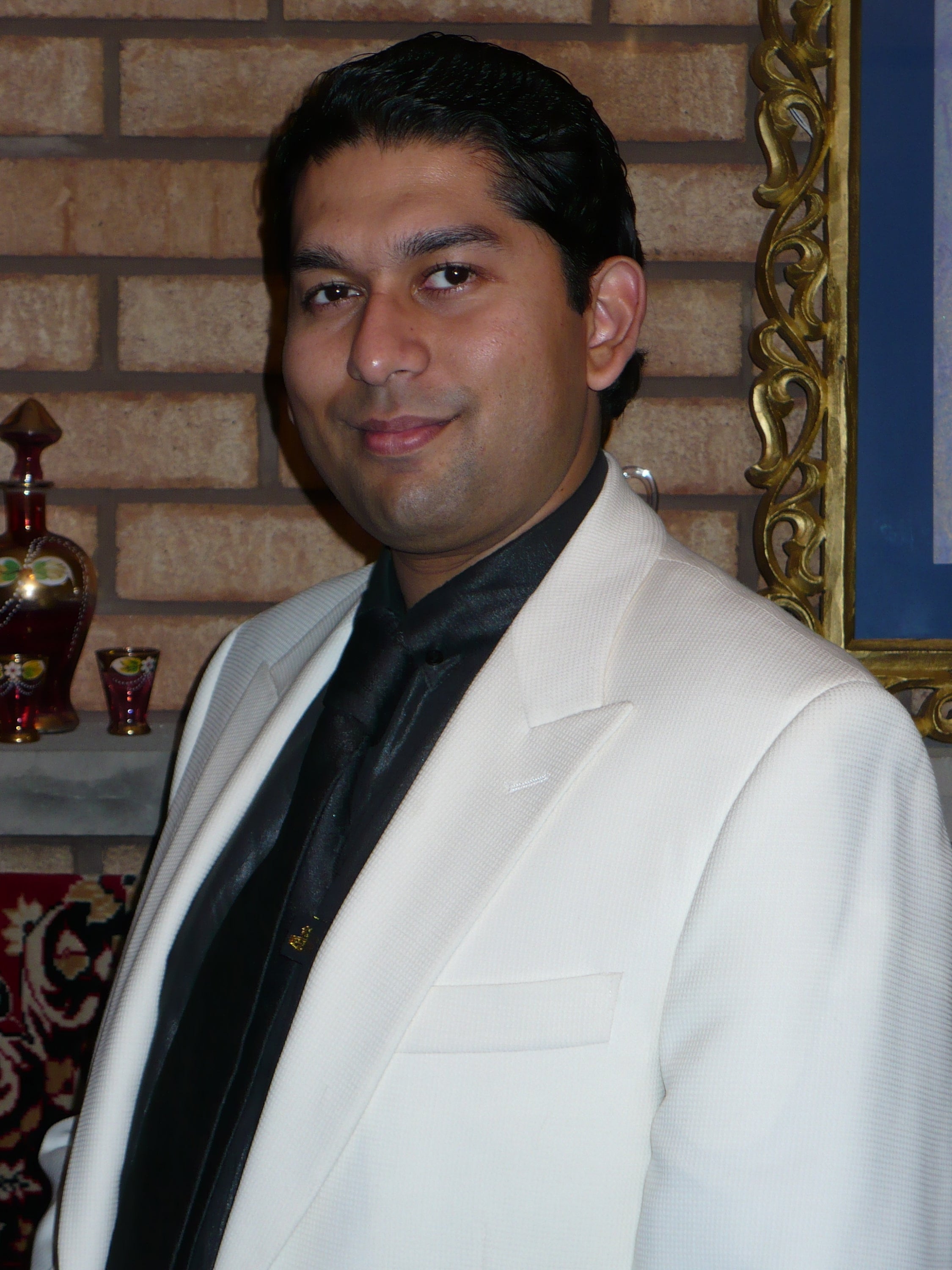
Written by Dr. Farhan M. Asrar (MPH’13)
Graduating in 2013 with a Master of Public Health and holding current faculty appointments at the University of Toronto, McMaster University, and the International Space University, Alumnus Dr. Farhan M. Asrar has been pivotal in examining how outer space can further help the fight against the Ebola outbreak. His research has recently been published in one of the world's leading medical journals, and he’s generously answered some of our questions below.
Can you speak to how space assets can play an important role in the fight against Ebola?
Space assets and technology have already been playing a role in our lives and we may not even realize it. With the current Ebola outbreak being the largest in history, totaling over 11,200 deaths, healthcare professionals were also among the casualties. Space has the ability to play an important role in the Ebola outbreak, and in fact is already playing a role: Prior to it being spread among humans, Ebola was spread among animals and satellite images were helping to map out the zoonotic transmission.
Telemedicine & Tele-epidemiology are key areas where space has already played a role in the Ebola crisis. Can you explain their importance?
Telemedicine involves providing healthcare from a distance, and was developed by space agencies to care for astronauts going to space and at the space stations. Telemedicine can reduce avoidable exposures by providing assessment, diagnosis, treatment and real-time patient monitoring from a distance. Additionally, it can also be used to increase the number of healthcare experts available, by enabling them to connect around the world. Tele-epidemiology is utilizing space assets and satellite images to assist in epidemiological assessments. Space technology and tele-epidemiology allows us to monitor, assess, prevent outbreaks, and help plan relief efforts; like mapping out the most affected areas, and locations for relief camps and water treatment centers. Thanks to Geographic Information System (GIS) and satellite images, we can now do even larger, more impactful assessments.
What are some of your proudest achievements and recognitions?
A difficult question to answer… I would just say anything and everything I’ve been part of! I feel proud and blessed to be involved in a number of activities and initiatives which relate to my different realms. All of those are special to me, whether it involves taking care of patients in my clinical practice or leadership initiatives in medicine, research, teaching, space studies, public and global health. I’ve helped the community by volunteering, founding medical magazines and newsletters, helping physician organizations, and assisting international medical graduates. I also started a voluntary student initiative to raise greater awareness about the plight of orphaned children, and to raise sponsorship donations. Based at the University of Toronto, it currently is in its 13th year and has raised over $700,000. Several University campus associations reached out to me and I’ve helped start similar initiatives on their campuses, including the University of Waterloo. I am humbled and feel blessed to have been recognized (by the Governor General, Ontario Govt, Medical organizations and UWaterloo) for a number of my achievements and activities, which were never done for recognition, but to make a positive difference in the lives of others.

Can you tell us about your UWaterloo experience?
I completed my Master of Public Health degree simultaneously while undergoing clinical training in family medicine, and public health & preventive medicine. I enjoyed the experience at UWaterloo and the city of Waterloo. The faculty members were great, and it enabled me to meet students and professionals from all over Canada that are interested in public health. One particular aspect that I appreciated about the program were the many courses emphasizing sociobehavioural areas. UWaterloo has also been furthering their interest and experiences in space sciences, having renowned astronaut Chris Hadfield as a faculty member.
What advice do you have for recent graduates?
Pursue your dreams and interests. Make the focus of those dreams and interests into making a positive difference in the lives of others, and be among those that benefit others. Success, fame and rewards will come along as long as the intentions are good and noble.